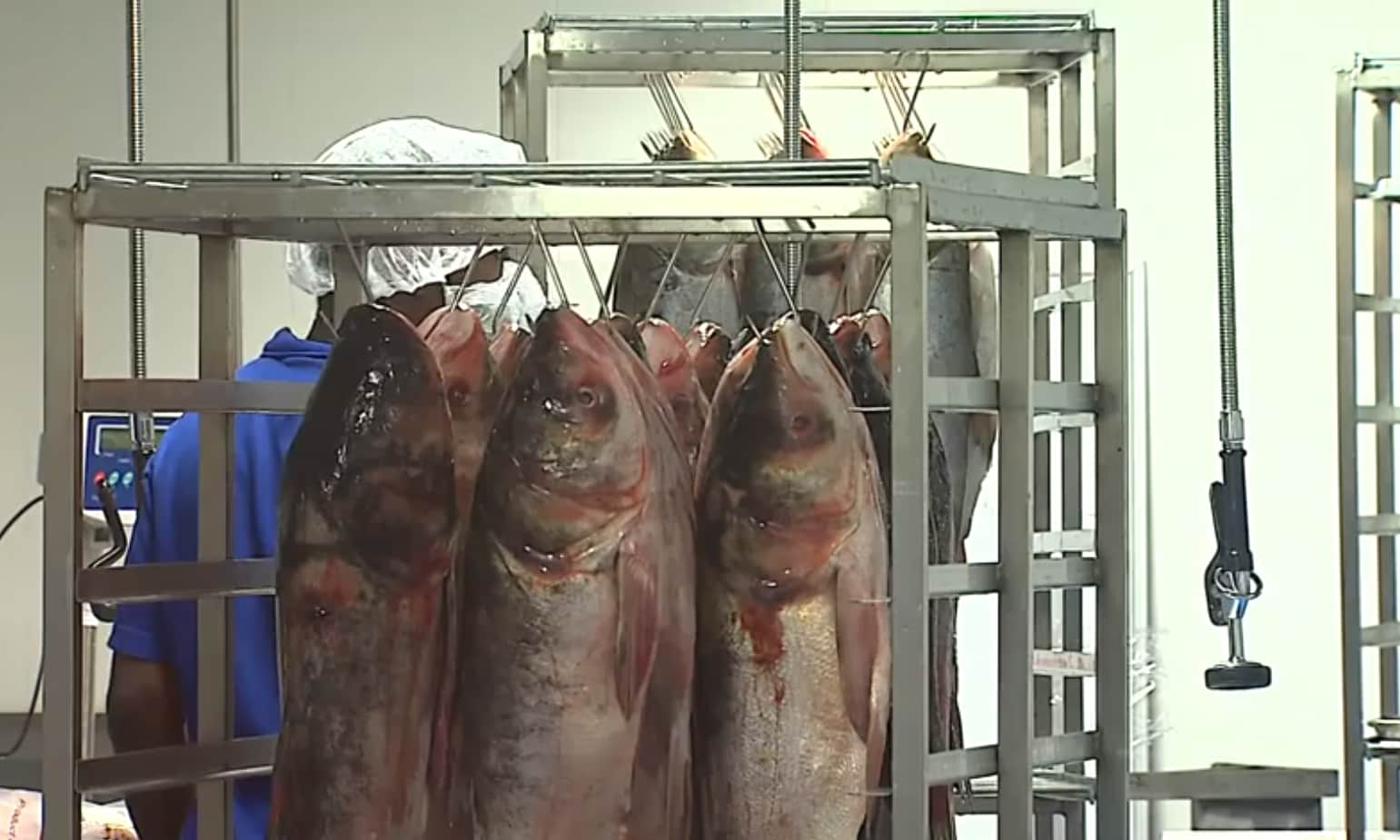Carp Hot Dogs and Salami: How Companies are Waging War on Asian Carp
Daniel Xu 02.17.14

More entrepreneurs are turning their attention to Asian carp, and it’s not hard to see why. As an invasive species, Asian carp are causing a headache for wildlife officials and conservationists. Highly adaptable and capable of pushing native fish out of their habitats, anglers and commercial fishermen view Asian carp as a significant threat. The prospect of carp getting into the Great Lakes—and threatening an economically vital fishery—was enough for lawmakers to call for an $18 billion plan to separate the lakes from the Mississippi River.
Therefore, any business that proposes removing and selling carp will likely win the approval of the public—along with possibly some state incentives. Such is the case with Two Rivers Fisheries, American Heartland Fish Products, Big River Fish, and Schafer Fisheries. These companies, based in states with sizable carp populations such as Illinois and Kentucky, intend on catching carp and shipping out the fish for profit.
There are many reasons why this is attractive to businesses. Carp are a vastly underused resource in the United States, despite being considered a valuable delicacy in other countries. Fishing for carp is also good for a company’s public image as it means less of the fish in local waters. Competition is low, unless you count state wildlife agencies electrofishing for the invasive species. Further, carp can be used for anything from food to fertilizer.
But there’s also a gamut of obstacles that have so far stopped carp from becoming popular with customers. Americans have long viewed carp as a large, ugly fish, and most find the taste off-putting. The largest customer base for carp is in Asia, and shipping costs often make export unfeasible. In addition, carp grown in America are significantly larger and taste different than fish found in Asia, which has led to low interest in foreign markets.
Now companies are trying to buck that trend, led by executives that not only want build a successful business but also want to make the best of the invasive species. One of them is Two Rivers Fisheries owner Angie Yu. The 58-year-old businesswoman is getting into the carp game fresh off another victory in 2012, when she began selling Icelandic lumpfish to China. Like Asian carp, lumpfish are often discarded after being caught. Fishermen have long targeted the fish for its valuable roe, but its thick skin and strange flavor mean it rarely sees the dinner table in Iceland. However, Yu told The Wall Street Journal she saw an opportunity when she tried cooking lumpfish for the first time. It tasted similar to sea cucumbers, a delicacy in China.
Soon after, the export of lumpfish to China in 2012 jumped 33 times what it had been in 2009.
You can watch a video on Yu’s fishery from Kentucky Afield below:
Yu recently reported that a million pounds of carp are headed to China as well, fished right out of Kentucky rivers and processed in Two Rivers’ $2.5 million facility.
While Yu has high hopes for establishing customers in China, Mike Schafer of Schafer Fisheries in Illinois is already selling carp to 16 different countries. Schafer sells carp fillets, both frozen and smoked, but his strangest concoction is the selection of kosher products he makes out of the fish. A package of carp hot dogs or salami will set you back $5, but Schafer promises they taste great. How exactly Schafer makes his fish franks is a guarded secret, but customers can expect a blend of carp meat, spices, and carrots. More traditional offerings such a gefilte fish can also be purchased through the fishery’s online store.
You can watch one anxious reporter chow down on some carp franks below.
More companies are warming to the idea. American Heartland Fish is expected to open a plant also in Illinois that will process 60,000 pounds of carp per day for fish oil and animal feed. Parisian chef and Louisiana resident Phillippe Parola has bigger plans, including restaurants, fisheries, and even carp-themed cruises.
“These fish are invading our waterways and threatening native fish species and the entire ecosystem of affected areas,” he wrote on his website. “Something must be done before this invasive species completely takes over America’s waterways.”
Parola’s answer? “Cook the damn thing!”
For these entrepreneurs, the hope is that the war on Asian carp will be a profitable one.

